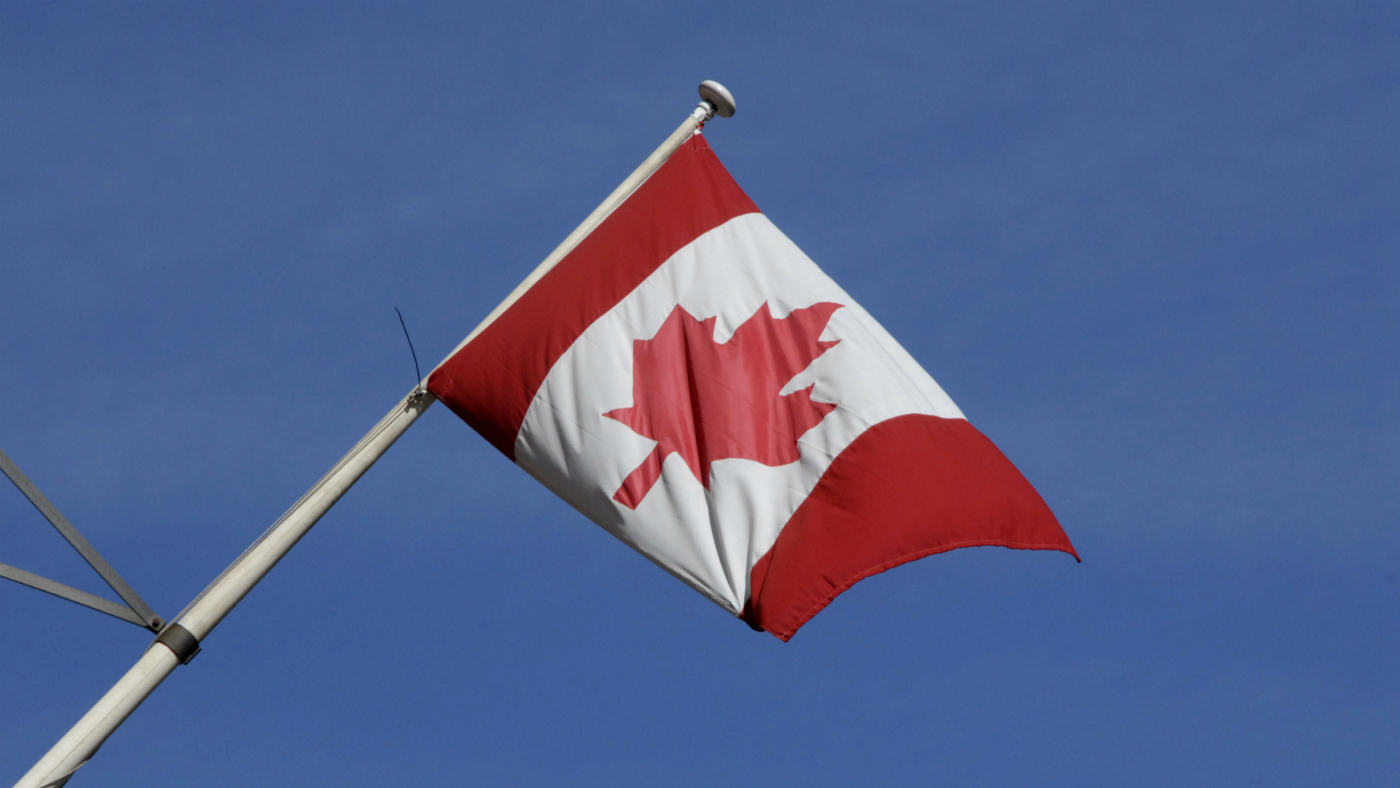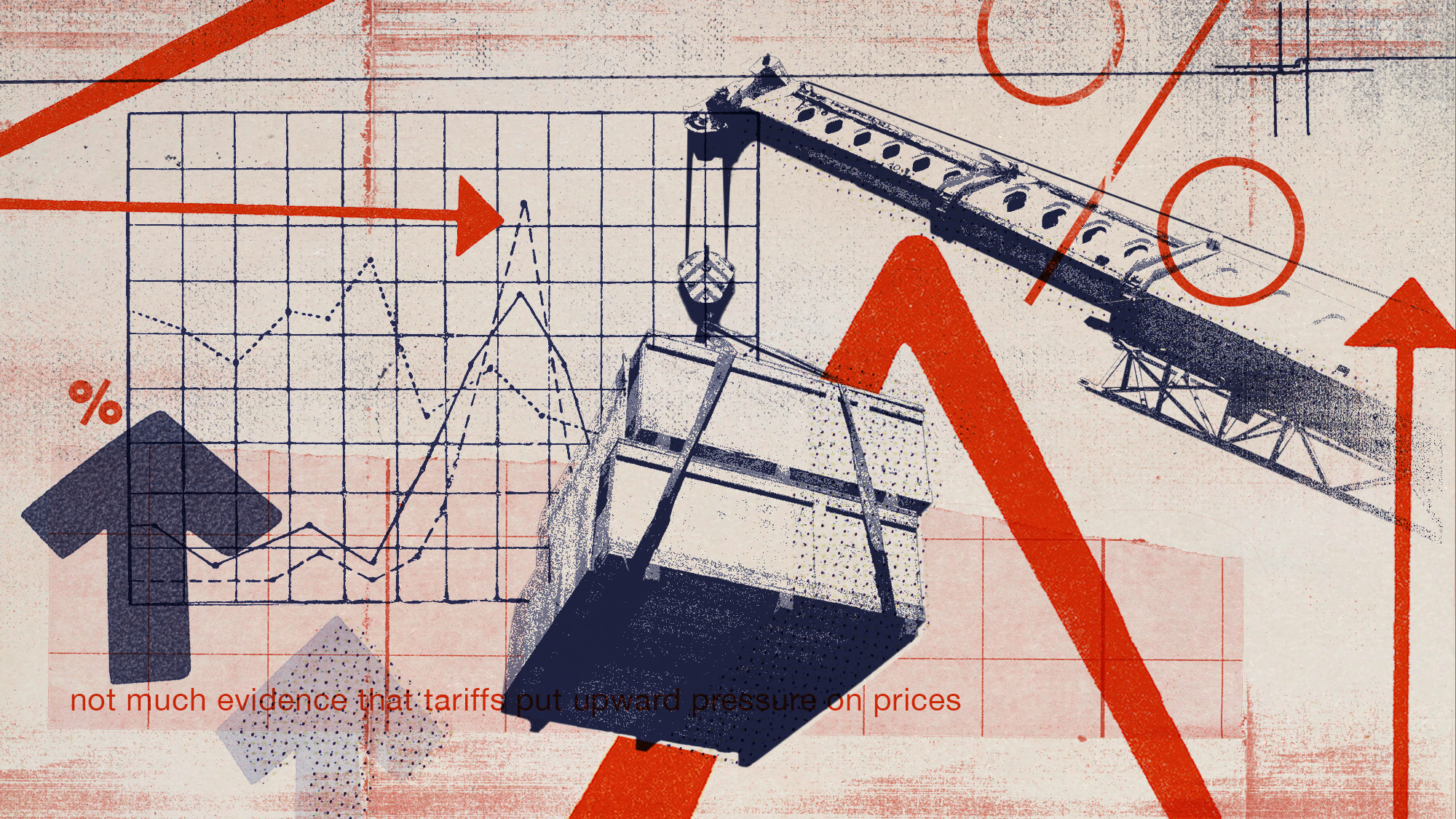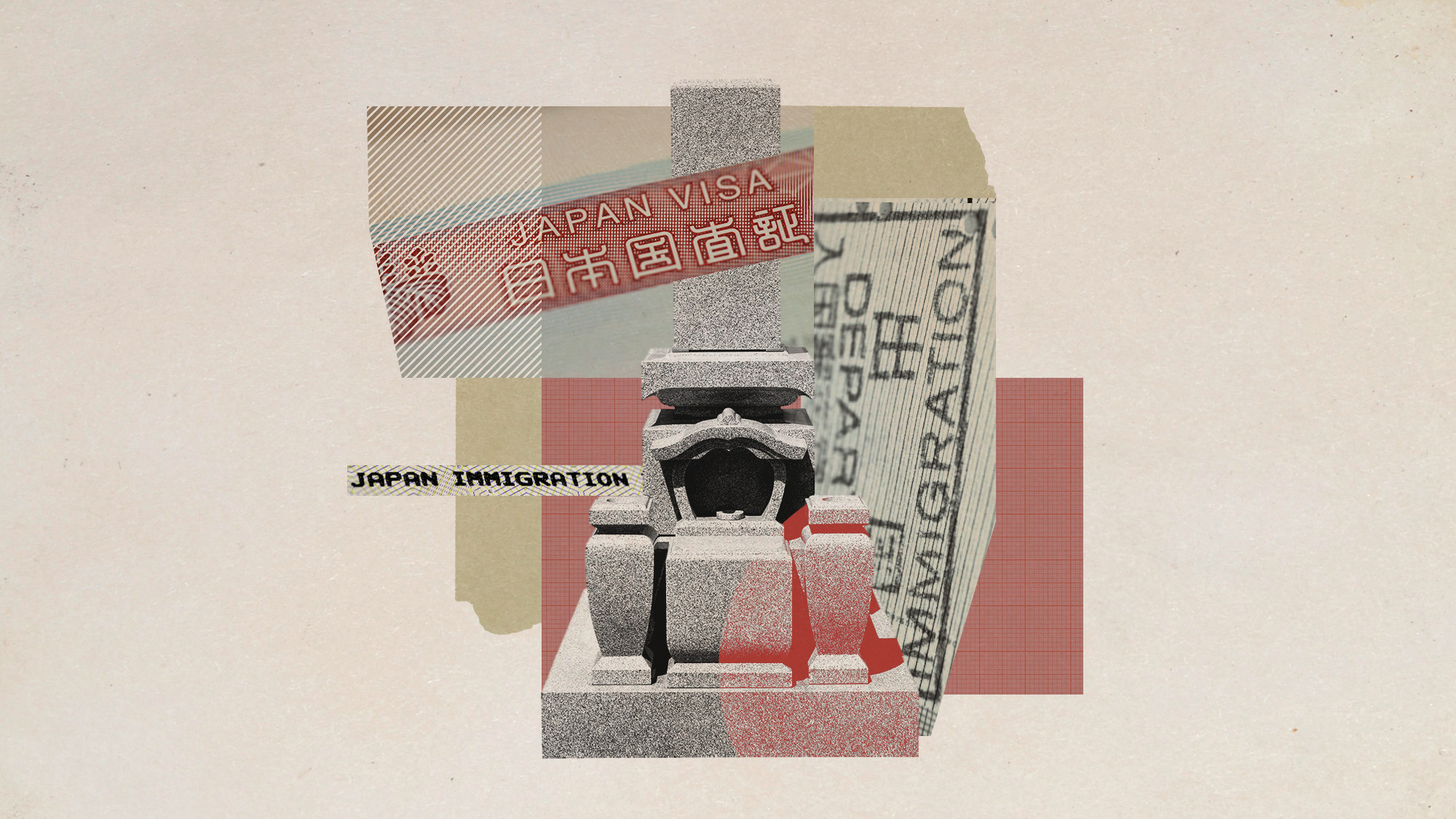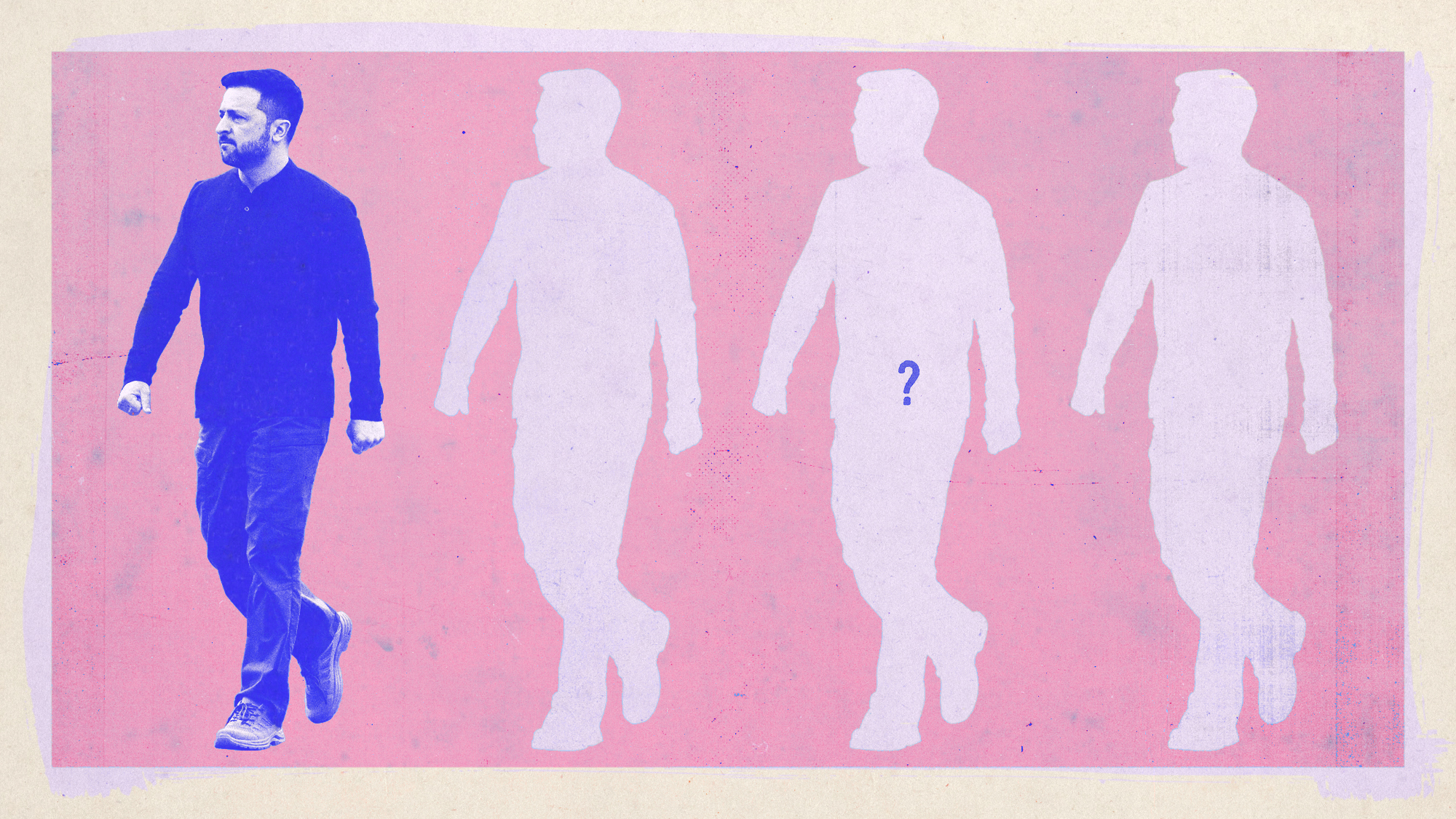Why Canada is opening its doors to more than a million immigrants
Government plans to welcome at least 350,000 new permanent residents every year until 2021

The government of Canada has announced plans to allow more than a million immigrants to settle in the country within the next three years.
Latest figures show that Canada awarded permanent resident status to 286,000 newcomers in 2017, but proposals laid out in the 2018 Annual Report to Parliament on Immigration could see that number climb to 350,000 this year, CNN reports.
In a country of just over 37 million people, that increased figure equates to nearly 1% of the total current population. And the number of admissions is expected to rise to 360,000 in 2020, before hitting 370,000 in 2021.
Subscribe to The Week
Escape your echo chamber. Get the facts behind the news, plus analysis from multiple perspectives.

Sign up for The Week's Free Newsletters
From our morning news briefing to a weekly Good News Newsletter, get the best of The Week delivered directly to your inbox.
From our morning news briefing to a weekly Good News Newsletter, get the best of The Week delivered directly to your inbox.
The government says that increasing immigration will help offset Canada’s aging population and declining birth rate while increasing the size of the labour force.
“Under this plan, Canada will welcome more talented workers with the skills and expertise our economy needs, reunite more family members and accommodate more refugees looking to start new lives,” says the report.
“With an ageing population and low fertility rates, immigration plays an important role in ensuring that Canada’s population and labour force continue to grow,” it continues, adding that controlled growth in the number of new migrants will “help us sustain our labour force, support economic growth and spur innovation”.
Minister of Immigration, Refugees and Citizenship (IRCC) Ahmed Hussen, who came to Canada from Somalia as a refugee, said on Thursday: “Thanks in great part to the newcomers we have welcomed throughout our history, Canada has developed into the strong and vibrant country we all enjoy.
“Immigrants and their descendants have made immeasurable contributions to Canada, and our future success depends on continuing to ensure they are welcomed and well-integrated.”
Newsweek reports that under what the government calls the “immigration levels plan”, of the 350,000 people expected to settle in Canada this year, around half will be “federal economic and provincial/territorial nominees” filling necessary jobs.
Another 89,000 will be admitted under a family reunification programme, and 58,500 will be welcomed as refugees, protected persons or for other humanitarian reasons.
CNN notes that Canada’s “friendly stance” towards new residents “comes as many other Western nations, including the United States, are adopting more restrictive immigration policies”.
But some are critical of the Canadian government’s policy.
Toronto-based newspaper The Globe and Mail reports that the country’s Prime Minister Justin Trudeau “faced blunt questions from people at a town hall in Regina” yesterday, including “one from a man who fears Canada’s immigration policies are putting lives at risk”.
The man “told Trudeau that Canada’s policy threatens freedom, that Islam and Christianity don’t mix and suggested that some immigrants want to kill Canadians”, the newspaper continues.
“They have openly stated that they want to kill us, and you are letting them in,” said the man, whose remarks were greeted with jeers from other attendees.
His allegations were dismissed by Trudeau, who suggested that most Canadians do not share such views.
“Canada remains one of the only countries in the world where citizens are by and large positively inclined toward immigration,” the PM said.
“Canada is a country that was built on immigration.”
Sign up for Today's Best Articles in your inbox
A free daily email with the biggest news stories of the day – and the best features from TheWeek.com
-
 Tariffs were supposed to drive inflation. Why hasn’t that happened?
Tariffs were supposed to drive inflation. Why hasn’t that happened?Talking Points Businesses' planning ahead helped. But uncertainty still looms.
-
 How can you find a financial adviser you trust?
How can you find a financial adviser you trust?the explainer Four ways to detect professionals who will act in your best interest
-
 8 gifts for the host that does the most
8 gifts for the host that does the mostThe Week Recommends Show your appreciation with a thoughtful present
-
 What happens if tensions between India and Pakistan boil over?
What happens if tensions between India and Pakistan boil over?TODAY'S BIG QUESTION As the two nuclear-armed neighbors rattle their sabers in the wake of a terrorist attack on the contested Kashmir region, experts worry that the worst might be yet to come
-
 Japan is opening up to immigration – but is it welcoming immigrants?
Japan is opening up to immigration – but is it welcoming immigrants?Under the Radar Plummeting birth rates and ageing population leaves closed-off country 'no choice' but to admit foreign workers, but tensions are growing with newly arrived Muslims
-
 Why Russia removed the Taliban's terrorist designation
Why Russia removed the Taliban's terrorist designationThe Explainer Russia had designated the Taliban as a terrorist group over 20 years ago
-
 Inside the Israel-Turkey geopolitical dance across Syria
Inside the Israel-Turkey geopolitical dance across SyriaTHE EXPLAINER As Syria struggles in the wake of the Assad regime's collapse, its neighbors are carefully coordinating to avoid potential military confrontations
-
 'Like a sound from hell': Serbia and sonic weapons
'Like a sound from hell': Serbia and sonic weaponsThe Explainer Half a million people sign petition alleging Serbian police used an illegal 'sound cannon' to disrupt anti-government protests
-
 The El Salvador mega-prison at the centre of Trump's deportation scheme
The El Salvador mega-prison at the centre of Trump's deportation schemeThe Explainer Invoking a 1798 law, the US president has sent hundreds of alleged gang members to high-security prison called 'black hole of human rights'
-
 The arrest of the Philippines' former president leaves the country's drug war in disarray
The arrest of the Philippines' former president leaves the country's drug war in disarrayIn the Spotlight Rodrigo Duterte was arrested by the ICC earlier this month
-
 Ukrainian election: who could replace Zelenskyy?
Ukrainian election: who could replace Zelenskyy?The Explainer Donald Trump's 'dictator' jibe raises pressure on Ukraine to the polls while the country is under martial law